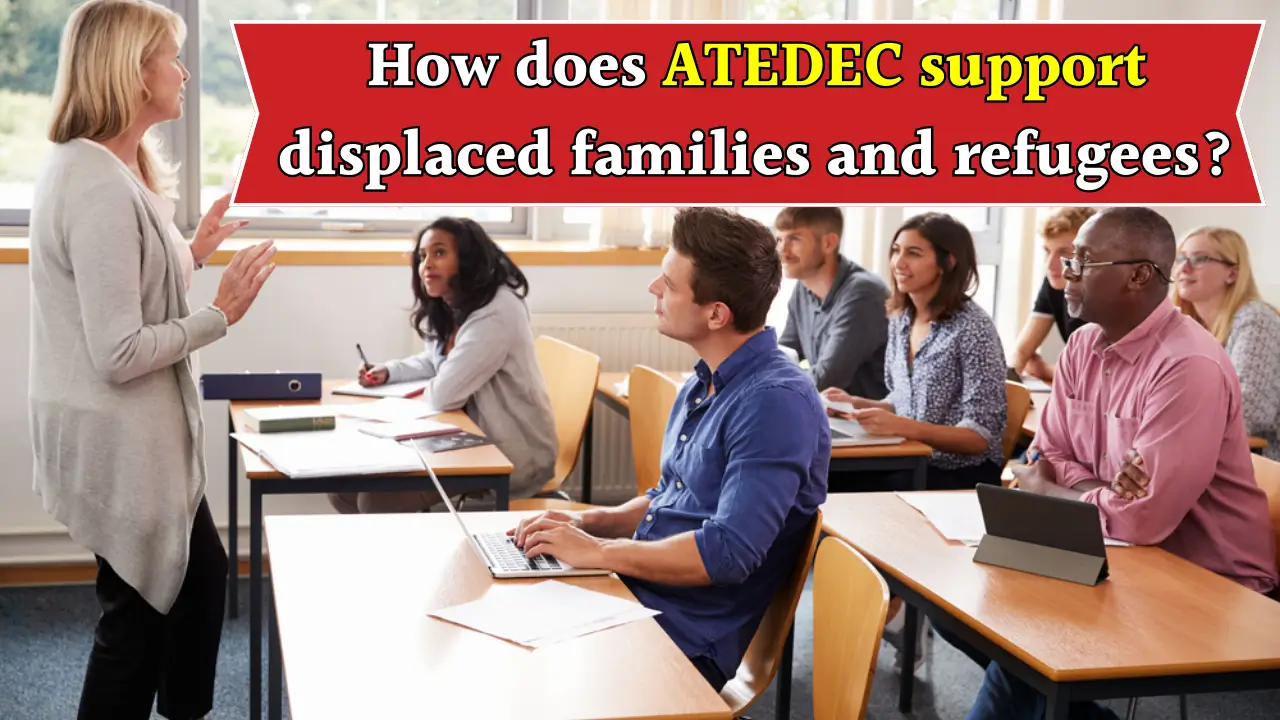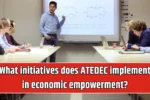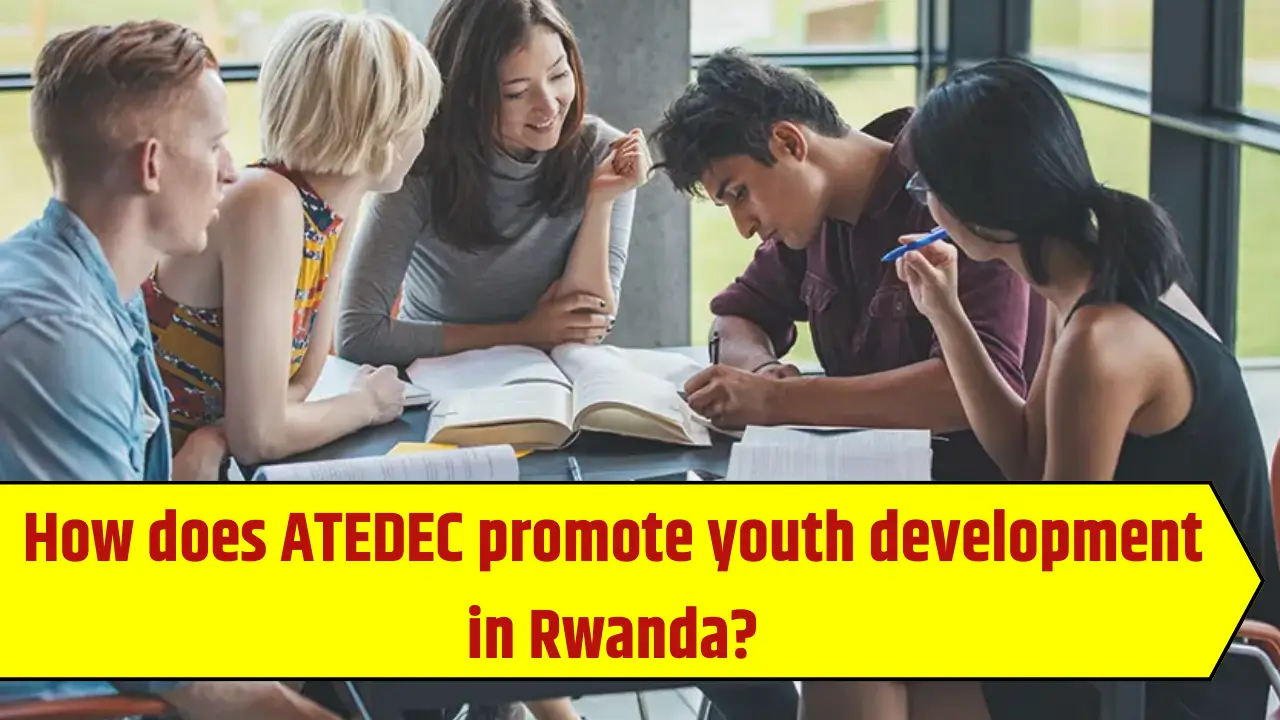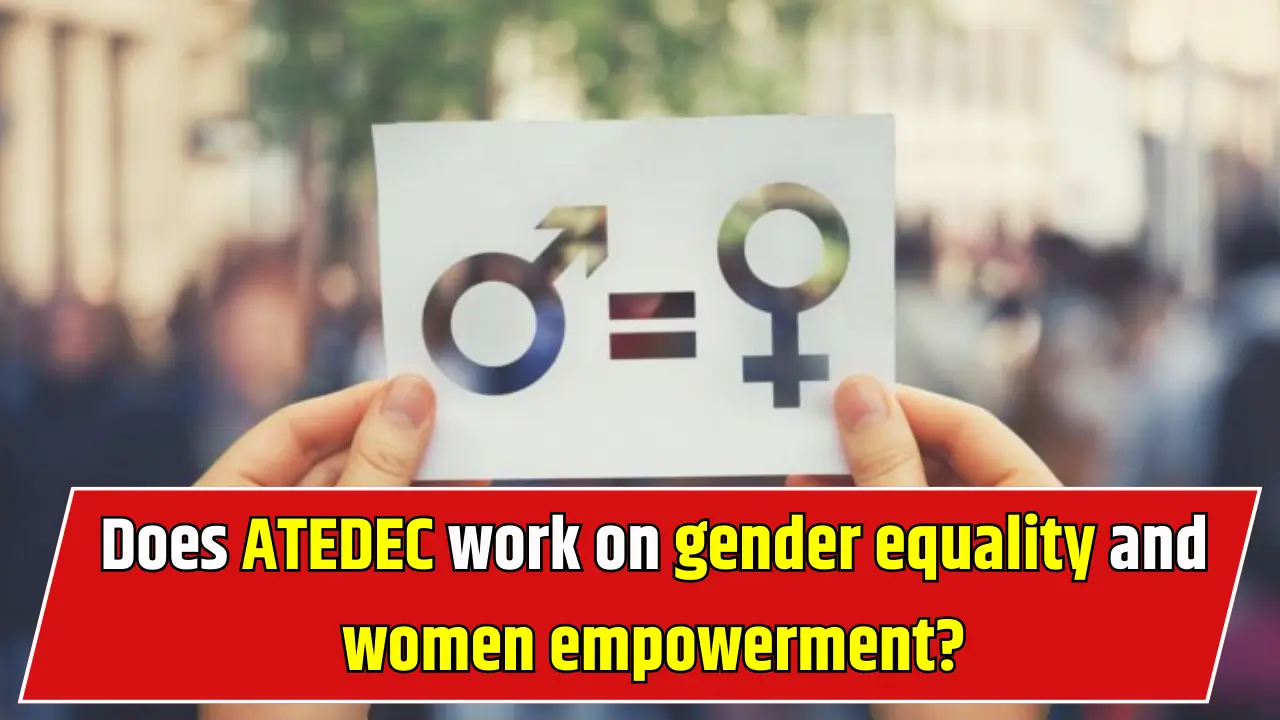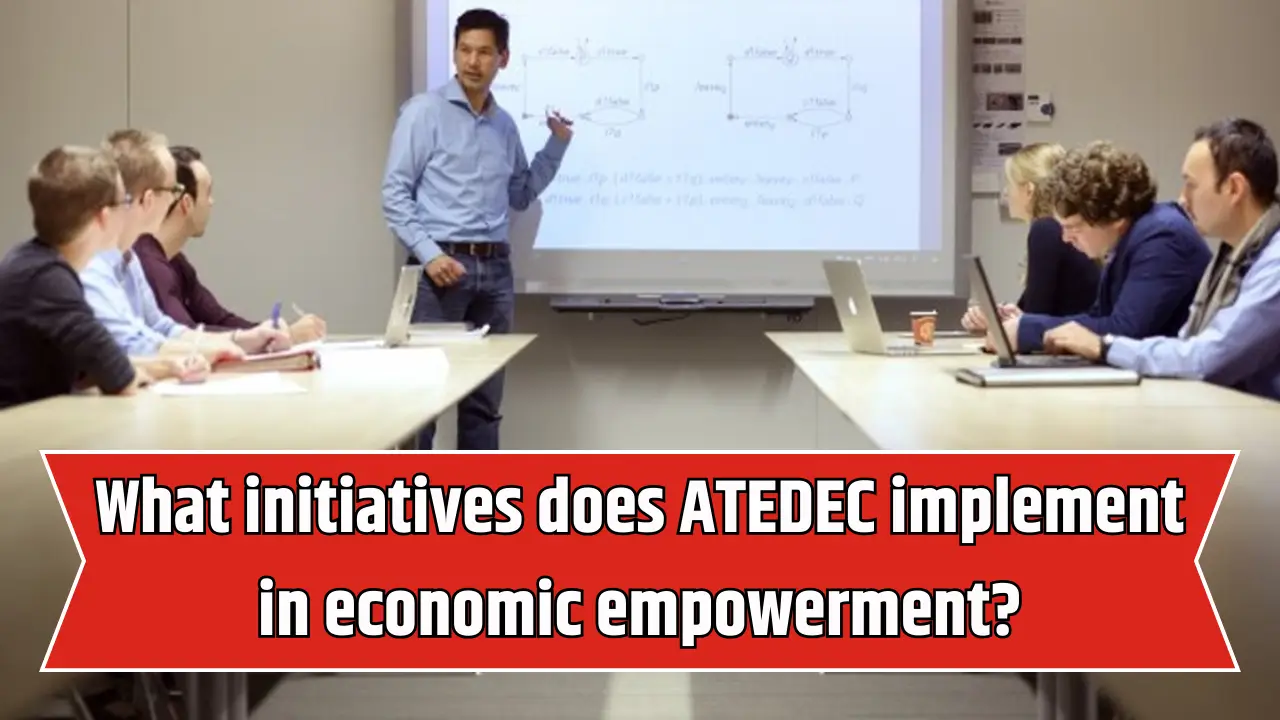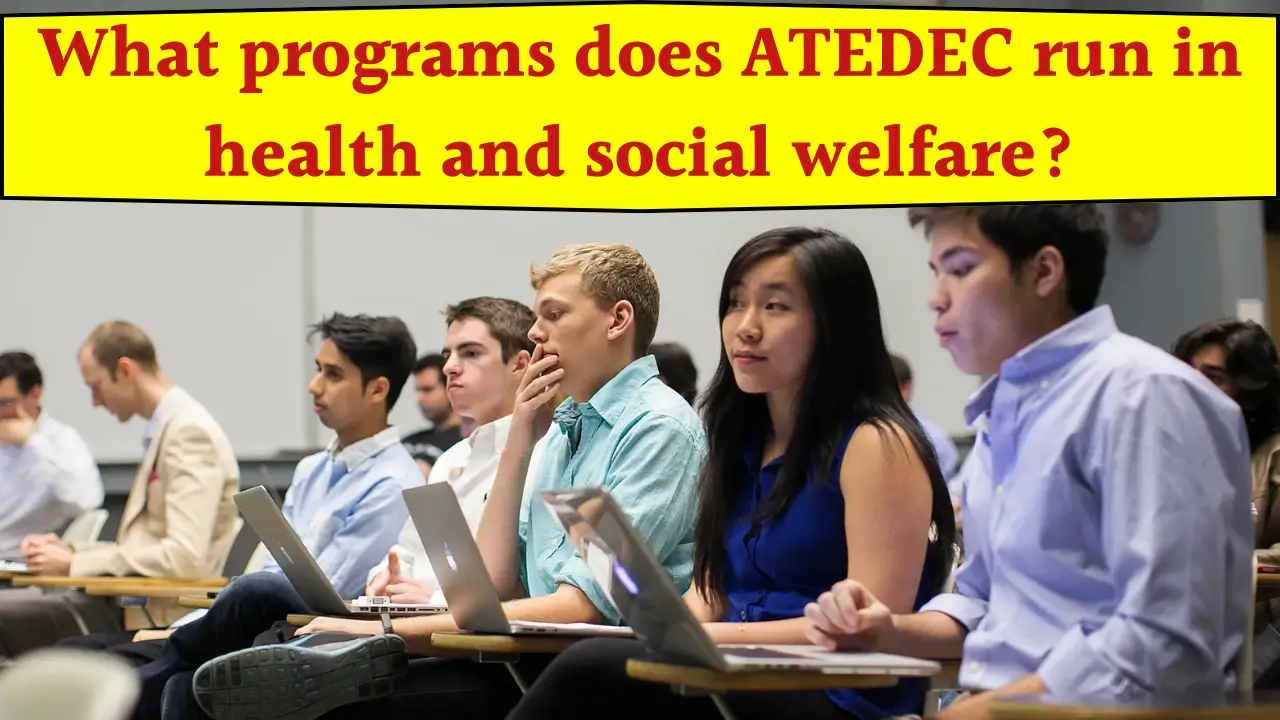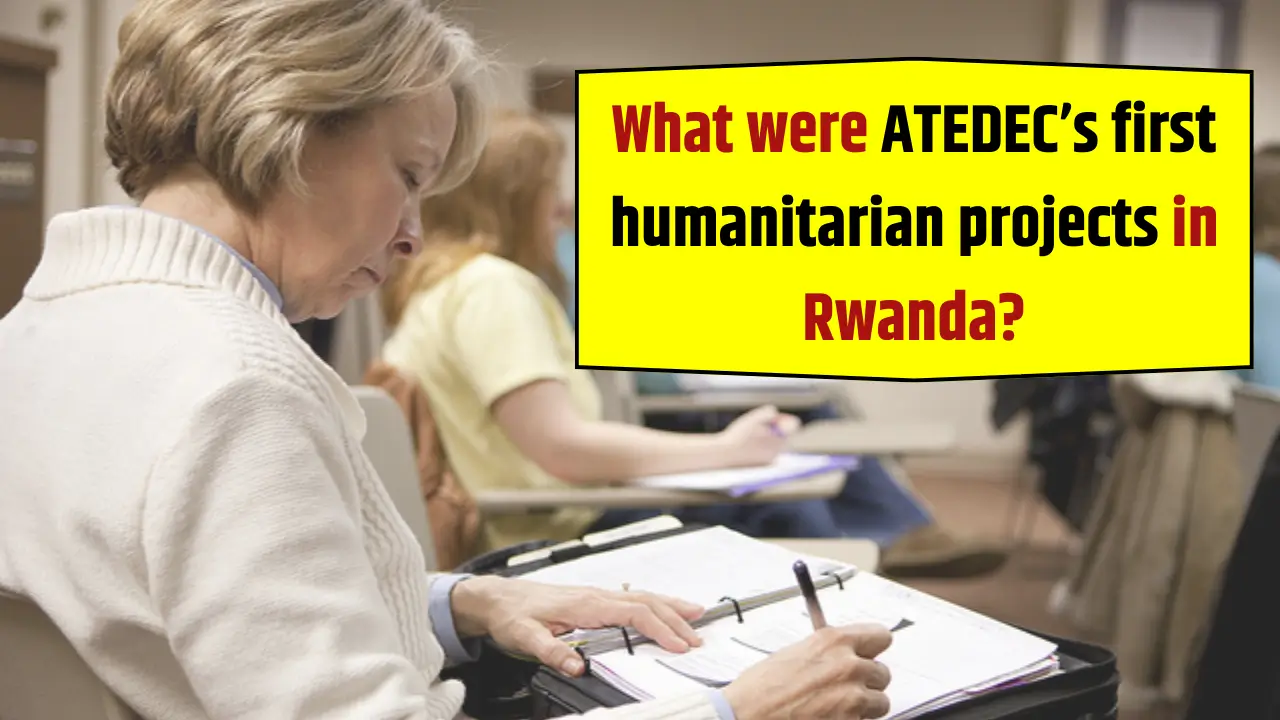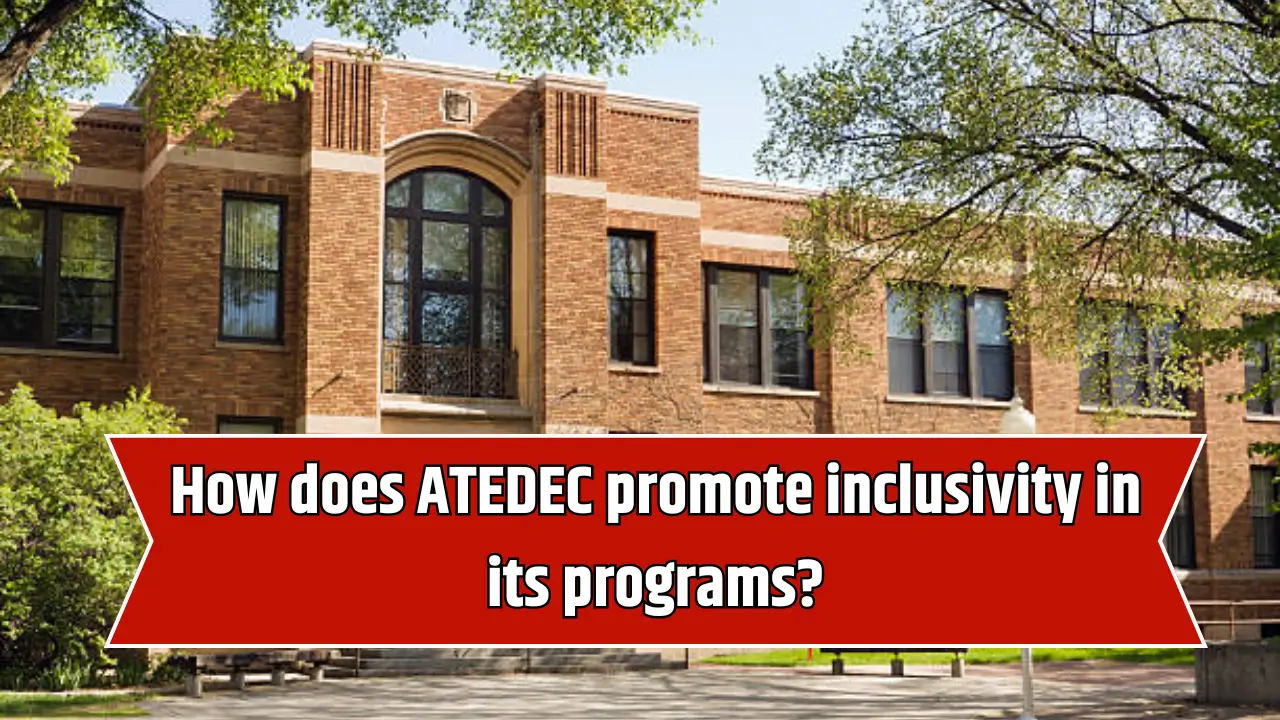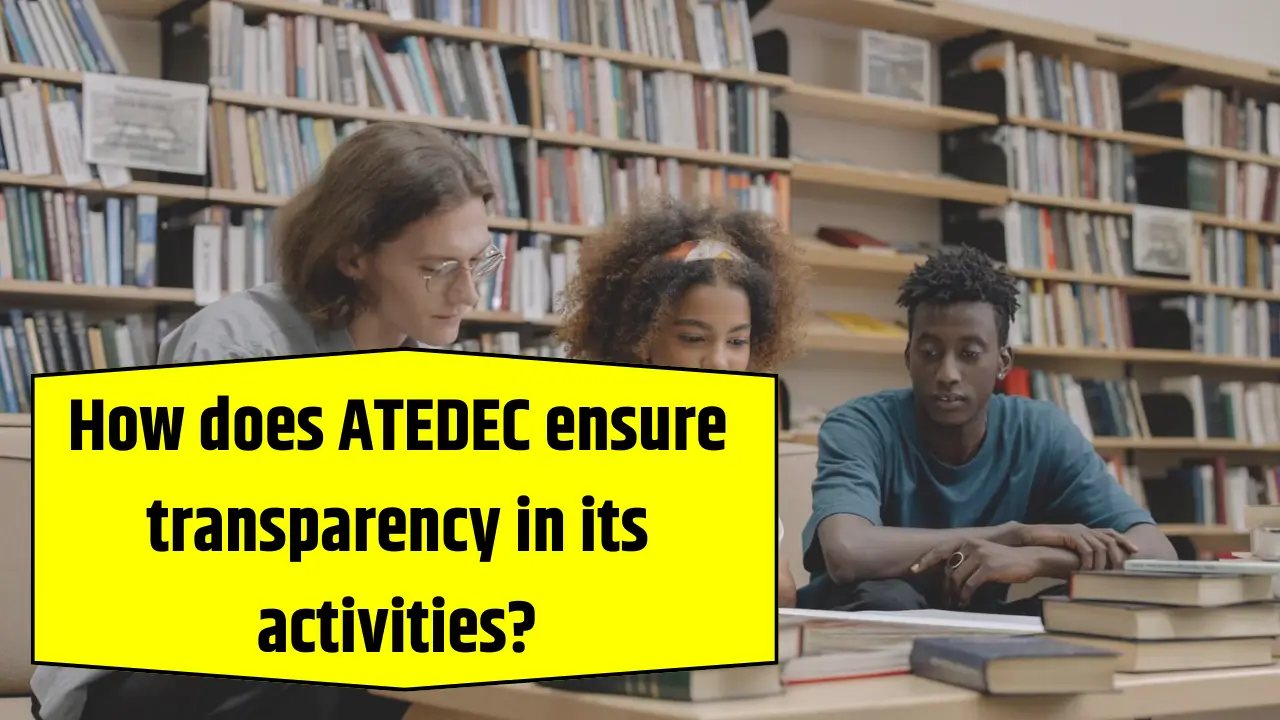ATEDEC (Action Technique pour un Developpement Communautaire) is a prominent humanitarian NGO in Rwanda with a mission to support vulnerable communities, especially displaced families and refugees.
Founded in the immediate aftermath of the 1994 genocide, ATEDEC has dedicated itself to addressing the urgent needs of displaced populations while fostering sustainable development and social reintegration.
This article delves into the comprehensive ways in which ATEDEC supports displaced families and refugees, detailing its key programs, strategic approaches, challenges faced, and recent updates in 2025.
Understanding the Context: Displacement in Rwanda
Rwanda has experienced significant population displacement due to the 1994 genocide, subsequent conflicts in the region, and ongoing challenges such as poverty and natural disasters.
The country hosts a large number of internally displaced persons (IDPs) and refugees mainly from neighboring Democratic Republic of Congo (DRC) and Burundi.
Displaced families and refugees face multiple hardships, including lack of shelter, food insecurity, limited access to healthcare and education, psychosocial trauma, and social marginalization.
Humanitarian organizations like ATEDEC play a critical role in filling gaps left by national systems during crises and in long-term recovery.
ATEDEC’s Mission and Core Values in Supporting Displaced Populations
Mission
ATEDEC’s core mission is to provide humanitarian aid, promote resettlement and reintegration, and facilitate community development with a focus on displaced populations and refugees.
Core Values
- Neutrality: Providing aid irrespective of ethnic, political, or religious affiliation.
- Inclusivity: Ensuring all displaced and marginalized groups are served.
- Humanity: Prioritizing protection and assistance to vulnerable groups such as children, women, and the elderly.
- Sustainability: Emphasizing long-term resilience and self-reliance.
- Accountability: Transparent use of resources for maximum impact.
Key Programs Supporting Displaced Families and Refugees
ATEDEC’s support to displaced families and refugees encompasses immediate relief, reintegration, and developmental interventions:
1. Emergency Humanitarian Assistance
- Food and Non-Food Item Distribution: Providing essential supplies such as food, clothing, blankets, and hygiene kits to displaced and refugee households facing crisis.
- Medical Assistance: Access to primary health care, vaccination campaigns, and treatment of malnutrition to address urgent health needs.
- Psychosocial Support: Trauma counseling and mental health programs help survivors of violence and displacement regain emotional stability.
2. Shelter and Resettlement
- Housing Construction and Rehabilitation: Building new homes or repairing damaged shelters to facilitate safe living conditions for displaced families and refugees.
- Land Access Facilitation: Collaborating with local authorities to allocate land for resettlement and farming, ensuring sustainable livelihoods.
- Infrastructure Development: Improving access roads, water points, and sanitation facilities in resettlement areas to enhance living standards.
3. Social Reintegration and Community Acceptance
- Community Dialogue Forums: Promoting peaceful coexistence between displaced families, refugees, and host communities to reduce tensions and foster acceptance.
- Capacity Building: Training community leaders and members on conflict resolution and social inclusion.
- Youth and Women Integration: Empowering marginalized groups to participate in social and economic activities to rebuild social cohesion.
4. Education Support for Displaced Children
- School Access Initiatives: Establishing or rehabilitating schools in areas inhabited by displaced populations.
- Provision of Learning Materials: Distributing uniforms, textbooks, and stationery to children from displaced families and refugee households.
- Scholarships and Vocational Training: Offering scholarships and vocational programs to enhance future prospects for youth.
5. Livelihood and Economic Empowerment
- Agricultural Support: Providing seeds, tools, and training on climate-smart farming to displaced farmers.
- Vocational Training: Equipping youth and women with practical skills such as tailoring, carpentry, and mechanics to enable self-employment.
- Microfinance Programs: Facilitating access to small loans for women and displaced entrepreneurs to start businesses.
6. Health and Nutrition Programs
- Maternal and Child Health Services: Focused care for displaced pregnant women and children to reduce mortality.
- HIV/AIDS Awareness and Prevention: Targeted campaigns in displaced and refugee communities.
- Nutrition Supplementation: Addressing malnutrition among the most vulnerable populations.
Impact of ATEDEC’s Support to Displaced Families and Refugees
| Program Area | Key Outcomes | Statistics/Examples |
| Emergency Relief | Thousands of displaced families received food and essential supplies annually. | Regular distributions in camps and settlements. |
| Shelter and Resettlement | Construction/reconstruction of hundreds of homes; land allocated to returnees. | Improved living conditions for thousands. |
| Social Reintegration | Reduced community conflicts; increased acceptance of displaced families. | Multiple successfully held community dialogues. |
| Education | Increased school enrolment rates among displaced children. | Hundreds of scholarships granted annually. |
| Livelihood Support | Enhanced food security and income generation for displaced households. | Vocational training for over 1000 youth yearly. |
| Health Programs | Improved child and maternal health indicators. | Vaccination and nutrition programs implemented in camp settings. |
Challenges in Supporting Displaced Families and Refugees
- Resource Constraints: Dependence on donor funding limits program scale and reach.
- Access Difficulties: Remote and insecure areas can hinder regular aid delivery.
- Psycho-social Needs: High prevalence of trauma requires sustained mental health support services.
- Climate Vulnerabilities: Natural disasters and climate change impact displaced communities disproportionately.
- Economic Integration: Employment opportunities remain limited for refugees and displaced youth.
- Social Tensions: Challenges persist in achieving full social acceptance in host communities.
Latest Updates and Innovations by ATEDEC (2025)
- Integrated Humanitarian and Development Approaches: ATEDEC increasingly combines immediate relief with longer-term development initiatives to enhance community resilience.
- Use of Technology: Digital platforms are utilized for beneficiary registration, aid tracking, and vocational training delivery.
- Climate Adaptation Initiatives: Introduction of climate-smart agriculture tailored for displaced farmers to combat food insecurity.
- Expanded Psychosocial Programs: Collaborations with mental health professionals to provide trauma-informed care.
- Women-Led Microenterprises: Enhanced financing and training programs aimed at women heads of displaced households.
- Youth Employment Initiatives: New partnerships with private sector actors to create apprenticeships and job placements for displaced youths.
Summary Table: ATEDEC Support Spectrum for Displaced Families and Refugees
| Support Type | Description | Current Innovations (2025) |
| Emergency Relief | Food, medical supplies, hygiene kits | Mobile distribution units, digital tracking |
| Shelter & Resettlement | Housing reconstruction, land access facilitation | Eco-friendly building materials, land mapping tools |
| Social Reintegration | Community dialogues, peacebuilding | Virtual engagement platforms, youth forums |
| Education | School rehabilitation, scholarships | E-learning modules, vocational training upgrades |
| Livelihoods & Economic Aid | Agriculture input, skills training, microfinance | Climate-smart farming, women-led businesses |
| Health & Nutrition | Maternal care, HIV/AIDS awareness, nutrition | Integrated health campaigns, telemedicine |
Conclusion
ATEDEC stands as a beacon of hope and practical support for displaced families and refugees in Rwanda. By addressing both immediate humanitarian needs and long-term developmental goals, the organization creates pathways for displaced populations to rebuild safe, dignified, and productive lives.
With missions rooted in neutrality, inclusiveness, and sustainability, ATEDEC’s diverse programs—from emergency food aid to vocational training and psychosocial support—create a multi-dimensional safety net for displaced families.
The NGO’s ongoing innovations and partnerships in 2025 signify a dynamic and adaptive response to evolving challenges faced by displaced communities.
As global displacement trends increase, ATEDEC’s model offers valuable insights into effective humanitarian assistance that blends relief with resilience strengthening, paving the way for displaced families and refugees toward self-reliance and integration.
